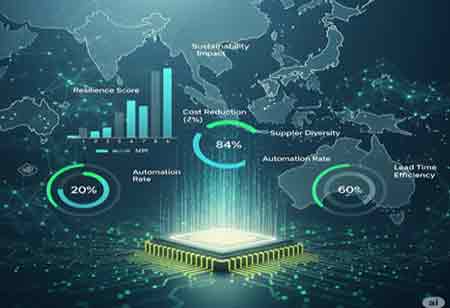THANK YOU FOR SUBSCRIBING
How is Blockchain Determining Provenance?
Fake products are everywhere these days, and companies are having a hard time cracking-down these counterfeit products and ensuring that their companies are not being cheated. But technology like blockchain can be used to solve this problem.

By
Apac CIOOutlook | Tuesday, June 16, 2020
Stay ahead of the industry with exclusive feature stories on the top companies, expert insights and the latest news delivered straight to your inbox. Subscribe today.
FREMONT, CA: Fake products are everywhere these days, and companies are having a hard time cracking-down these counterfeit products and ensuring that their companies are not being cheated. But technology like blockchain can be used to solve this problem.
To improve the transparency of food sourcing, a blockchain-based cloud network that enables greater traceability, efficiency, and transparency is developed, by establishing a better tracking mechanism for shipments. The scan that is conducted for the products' re-assigned QR code reveals that each step in that product's journey. The technology's primary goal is to provide peace of mind for today's conscientious consumer who wants to know precisely the process of their food arriving at the family table. To begin with, produce to meats and seafood; retailers are empowering blockchain to track perishable shipments.
Blockchain technology indeed allows retailers, suppliers, and anyone who has access to the software, to get real-time information on a product's origination and the stops it made on the way before it reaches the destination. Also, if it is olive oil, blockchain can be useful in deciding the provenance and delivery path, but not the purity or freshness of the product. Blockchains OR codes deliver valuable information to the buyers, such as the location where the olives were harvested, when the olives were crushed, filtered, package, and shipped.
At present, with the food costing the industry tens of billions of dollars every year, it is the responsibility of the supplier and the processing and packaging companies to do their due diligence for determining that the quality and freshness of every product they sell is supreme. The fraudsters contaminate olive oil by mixing EVOO with lower-quality oil, impacting both the health benefits and the taste. Because oil adulteration and fraud can happen at any stage of the process from supplier to the packaging companies, have to evaluate their process for possible points of contamination and test each shipment thoroughly.
Retailers and the suppliers can leverage the latest blockchain technology to determine the provenance of their olive oil and where the shipment is halting on the way, but when it comes to the purity quality, and freshness of olive oil, the responsibility rests with the company whose name is on the label.





